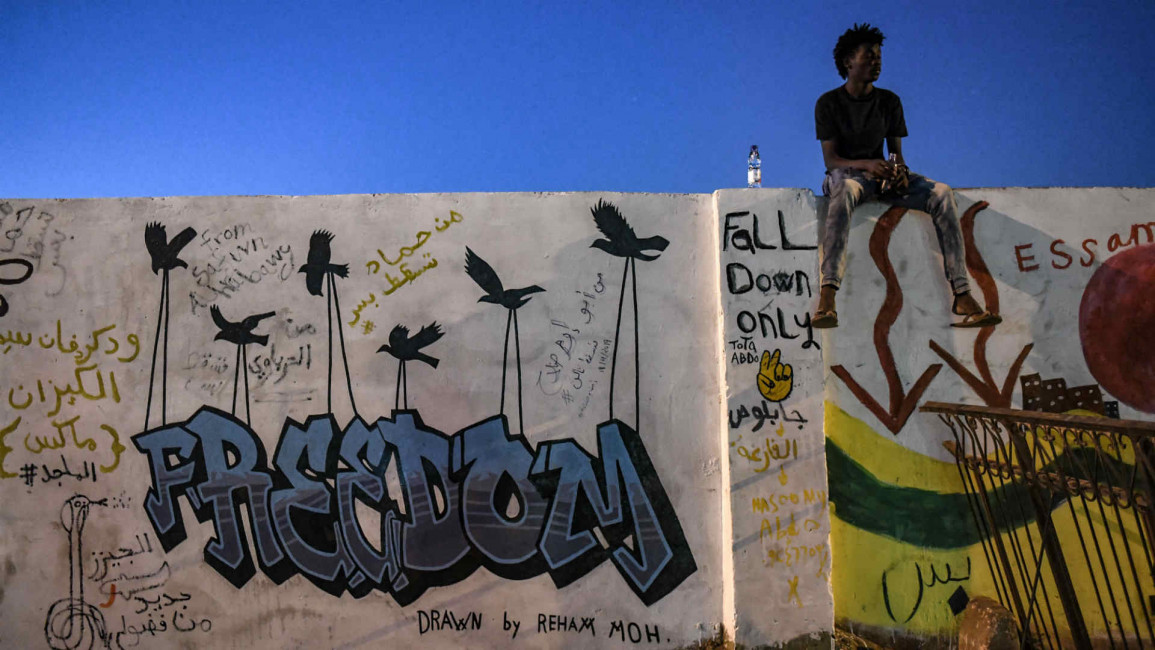Sudan protest organisers to unveil civilian transitional council to tackle economy and end war
Leading protest organisers in Sudan will announce a civilian transitional council tasked with combating the country's long-running economic crisis and multiple conflicts later on Sunday.
The Alliance for Freedom and Change (AFC) has been in negotiations for a civilian handover with the country's governing military transitional council since last week.
Sudan's military seized power in a coup earlier this month, overthrowing former president Omar al-Bashir after months of mass protests calling for his ousting.
Organisers are expected to announce the composition of a civilian council they want to replace the military junta on Sunday evening.
The organisers hope the announcement will enable them to "exert more pressure" on the ruling military, Mohammed Naji al-Asam of the Sudanese Professionals Association (SPA) told AP.
The SPA has been the leading organiser of Sudan's protest movement since demonstrations erupted in mid-December and is a key component of the negotiating AFC.
"We are ready with a clear plan for a transition with qualified names," Asam, a 28-year-old doctor and one of the negotiators, said.
Protesters have been demanding a transitional government led by technocrats rather than politicians for around four months.
They are also demanding the arrest of additional members of Bashir's regime.
Bashir is currently imprisoned in the capital Khartoum, where the military council has said it will not extradite the former leader to the International Criminal Court (ICC), where he is wanted for alleged war crimes and genocide in Darfur.
Several other regime figures have been arrested. Activists fear others will remain free from punishment on accusations of corruption and human rights abuses.
The military council was becoming more powerful every day, and "this is dangerous to the revolution", said Asam.
Although the military junta has promised a smooth transition to civilian government in two years time, as well as the prosecution of members of the security services and other forces accused of killing protesters, activists are wary of the military's true loyalties.
The SPA has repeatedly called on protesters not to leave a mass sit-in outside the Army General Command in Khartoum, now in its sixteenth day, until all of their demands are met.
The AFC on Saturday published a snapshot of its transitional plan.
"Poison gas does not just disappear once it stops being pumped out," the AFC said in a statement published by the SPA. "This is the legacy of the former regime."
The protest organisers and lead negotiators stressed that it would be necessary for Sudanese protesters to be patient during the transitional process, as change would be "gradual" due to the legacy of the regime and the "critical economic situation".
The two must urgent tasks a civilian transition body will face are working towards an economic recovery and an "end to war and armed conflicts", the alliance said.
Realising human rights denied to many under Bashir's rule and giving compensation to the "victims… [of] injustice and extreme violence" would be key in ending those conflicts, it added.
The Sudanese state has continued to be involved in civil conflicts with rebel groups in the country's south since the secession of South Sudan in 2011.
Government forces, including the paramilitary Rapid Support Forces (RSF) led by the now-deputy leader of the military transitional council, have been accused of attacks on civilians and human rights abuses in the conflict zones of Darfur, Blue Nile and South Kordofan.
The AFC also warned that some "unpopular" decisions would need to be made by a civilian transitional council in order to guide Sudan into economic recovery.
Medium- and long-term aims include reforming the country's healthcare and education systems, raising wages, improving workers' rights, and land reform.



